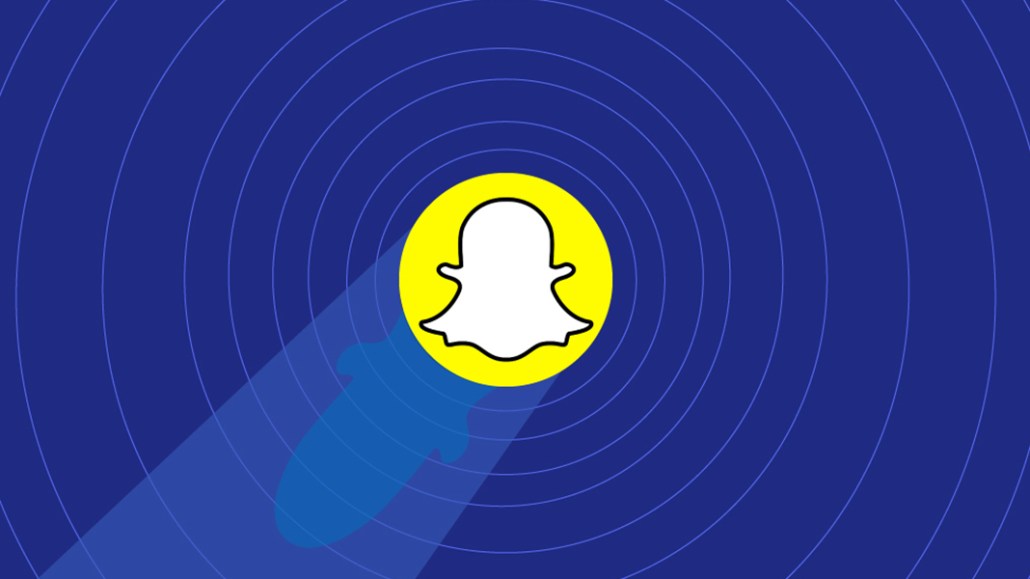Secure your place at the Digiday Media Buying Summit in Nashville, March 2-4
Snapchat sunsets its AR Enterprise division as it vows to give advertisers AR tools

Snapchat’s decision to close its AR Enterprise division has raised questions about the platform’s evolving augmented reality strategy.
Launched in April 2023, this division aimed to assist businesses in integrating Snapchat’s AR technology into their own applications. However, the investment needed to broaden AR capabilities to meet the needs of retail clients as well as the growth of generative AI has made it harder for Snapchat to “differentiate its offering,” per a note from CEO Evan Spiegel.
With the move, Snapchat is firm that it still plans to invest in its AR experiences for users and advertisers. Existing deals with notable brands like the LA Rams at SoFi Stadium for the current NFL season and American Airlines won’t be affected, said Anmol Malhotra, head of sports partnerships at Snap Inc. American Airlines did not respond to a request for comment and LA Rams declined to comment on this story.
“We are not diminishing the importance of AR,” he said. “In fact, we are strategically reallocating resources to strengthen our endeavors in AR advertising and to elevate the fundamental AR experiences provided to Snapchat users.”
Snap’s early strategy for the division focused on mobile AR technology, but over time, Snapchat learned that it needed to invest “incrementally to support web-based augmented reality, which is both technically complex and less engaging for its customers,” according to CEO Spiegel’s memo sent to Snap Inc. employees on Sept. 27.
At the same time, the growth of generative AI capabilities has created more competition for AR try-on experiences making Snapchat’s offering more difficult to differentiate.
Snapchat’s previous forays into the realm of AR experiences include those with big-budget films such as “Black Adam” and “Shazam” as well as beauty brand L’Oréal.
“Snap’s augmented reality has offered a way for our clients to create a unique consumer experience you can’t provide with any other platform, such as virtually trying on Carhartt’s famous beanie in a variety of colors,” said Jeremy Ekes, senior director of client strategy and service for the advertising agency January Digital. “It has been a means to break through the advertising clutter and show up in a whitespace in our clients’ category.”
Ekes continued: “It’s no surprise the Enterprise AR offering struggled to scale — in a world where brands must prioritize investment decisions, AR experiences just are not at the top of the punch list. There are bigger fish to fry for most brands, aside from those with massive budgets. With the latest advancement of generative AI, too many other shiny offerings have gotten on the priority list for marketers in the past six months.”
As previously reported on Digiday, advertisers are increasingly hesitant to allocate their budgets to Snapchat due to the platform’s perceived limitations. At the same time, ad budgets have been squeezed and under more scrutiny this year making advertisers focus on bread and butter channels rather than experimental areas like AR, explained Anthony Hamell, executive director of digital and social at TBWA\Chiat\Day NY.
“In an era of economic uncertainty brands have been placing a greater emphasis on performance marketing,” said Brendan Gahan, chief social officer and partner at Mekanism. “As a result, second tier platforms and experimental mediums have undoubtedly suffered. I have little doubt AR has a bright future. However, it’s still an emerging technology.”
—Kristina Monllos contributed reporting.
More in Marketing

Future of Marketing Briefing: AI’s branding problem is why marketers keep it off the label
The reputational downside is clearer than the branding upside, which makes discretion the safer strategy.

While holdcos build ‘death stars of content,’ indie creative agencies take alternative routes
Indie agencies and the holding company sector were once bound together. The Super Bowl and WPP’s latest remodeling plans show they’re heading in different directions.

How Boll & Branch leverages AI for operational and creative tasks
Boll & Branch first and foremost uses AI to manage workflows across teams.








